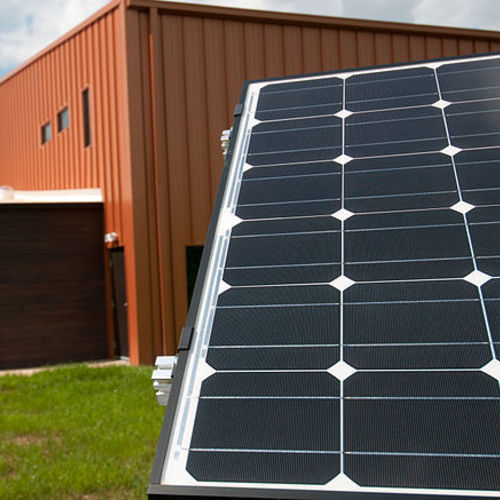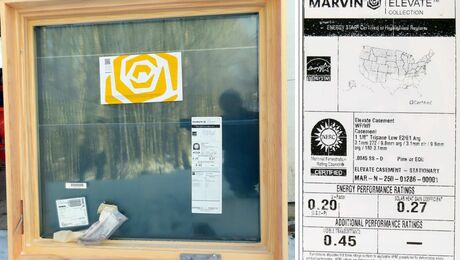
In what’s shaping up to be one more clash over state energy policy, Maine Governor Paul LePage has proposed the elimination of both net metering and Maine’s renewable portfolio standard. Both policies are regarded as essential by renewable energy advocates but too expensive by the executive branch.
Legislators already are doing battle with the Republican governor over how to fix a typo in a 2013 law that now threatens to gut the Efficiency Maine program. The new proposals, yet to be scheduled for a public hearing, will add fuel to the fire.
Under current rules, Maine residents with small solar or wind systems are paid the full retail rate for excess electricity they sell to the grid. That would end, as would requirements that Maine electric utilities purchase an increasing amount of their electricity from renewable sources.
In both cases, the governor’s energy office says changes are intended to simplify existing law and make electricity more affordable for both residential and industrial customers.
Renewable energy advocates are outraged.
Net metering is a “regressive tax”
Echoing arguments made by any number of electric utilities, the governor’s energy office called current net-metering rules “regressive” and said they amount to unfair subsidies for those who can afford to install photovoltaic (PV) systems.
“It’s a regressive tax that’s disproportionately placed on low-income Mainers, and we have a lot of low-income Mainers,” said Lisa Smith, senior planner in the energy office. “In Maine, someone who has a solar panel who applies for net metering not only gets credited the full retail value of the electricity, they’re not paying their fair share of grid maintenance because they’re not only being credited for the supply, they’re also being credited the [transmission and distribution] portion of the bill.
“They’re getting everything for free and someone who doesn’t have a solar panel is paying for that,” she continued. “They’re paying for their own and they’re paying for the folks who have solar panels.”
Because there are only a couple of thousand net-metered customers in the state now, she said, the costs are not significant, adding, “It has the potential to become quite significant.”
Recently, a study conducted for the Maine Public Utilities Commission concluded the actual value of electricity generated by PV customers is double what net-metering now pays. And the latest news was greeted with “disbelief” by the co-founder of a Maine renewables company.
“We are rubbing our eyes in disbelief at the governor’s new energy bills,” Phil Coupe, co-founder of ReVision Energy, told The Portland Press Herald in an article published on May 13.
“They will take Maine’s energy policy back to the Stone Age,” Coupe said of the new proposals.
Portfolio standard is an “artificial subsidy”
Maine has a two-tier renewable portfolio standard that separates renewable energy sources into two classes, Smith explained. Class 1 includes energy projects that existed prior to 2005 or 2006, such as combined-heat-and-power plants and waste-to-energy facilities. Class 2 includes solar, wind, small hydro, and biomass.
Maine utilities are now required to purchase an increasing amount of the electricity they sell from Class 2 sources, rising to 10% by 2017.
“What has actually happened in Maine is that over 50% of our electricity is already generated from renewable sources,” Smith said. “We have one of the cleanest, the second cleanest, [mix] in the nation as far as electricity generation already.”
The real driver of renewable investment in the state, she said, is the demand from southern New England, where the prices for renewable energy certificates (or RECs) are higher.
“A wind project in Maine,” she said, “they’re selling their RECs in Massachusetts or Connecticut. They’re not even using our market. We have this artificial, so to speak, subsidy that is not achieving the goal of driving renewable energy investment in Maine.”
Smith said the renewable portfolio standard costs Maine ratepayers millions of dollars a year.
Lower regulatory barriers for nuclear plants
Also on the energy front: The governor recently submitted legislation that would eliminate the requirement for voter approval for any nuclear plant with a generating capacity of less than 500 megawatts.
Maine hasn’t had a nuclear power plant since Maine Yankee in Wiscasset closed in 1996. There are still some 550 tons of spent nuclear fuel from the 900 MW plant stored on site.
The new proposal hasn’t had a hearing to date, and Smith said she was unaware of any specific plans for bringing a new reactor into the state.
“I’m personally not aware of it,” she said. “A couple of these proposals were put in to just start a discussion and try to eliminate some outdated language. We actually had language in our statute that said nuclear was bad, or something along those lines. So there were a couple of proposals to look into this issue again. I’m not aware of anything on the horizon.”
LePage is actively working to increase the availability of natural gas in the state as a way of bringing down energy costs and making the state more attractive to new industry. Lower costs, not the source of the electricity, is key, Smith said.
“The governor is completely agnostic as to the source of the energy,” she said. “He just wants the best deal and he does not want the electricity price hikes we’ve seen. We have large industrial customers who won’t come to the state because of the volatile electricity prices.”
But it’s a blow to advocates
Maine is the only state in New England without incentives of its own for solar power, and installers and other renewable advocates were dismayed by the latest proposals from the governor.
Vaughan Woodruff of Insource Renewables told The Press Herald that the legislative proposals will discourage customers because they will create uncertainty about the future of net metering, a key component in weighing the economics of a purchase.
Coupe also pointed to the contribution renewable energy already is making to the state — a $2.6 annual contribution to the state’s economy every year and the creation of 12,000 jobs, according to a study funded by the Maine Technology Institute, the newspaper said.
He called LePage’s proposals “mind boggling.”
In an email, Coup raised another point: Maine’s economy increasingly relies on tourism, yet the state is the “worst air polluter in the region.”
“Maine already has the lowest electricity rates in all of New England, but we also have the highest per capita carbon pollution in the region due to our over-reliance on oil, propane, natural gas, and gasoline,” Coupe wrote. “As our once-vaunted pulp and paper continues to decline due to global market factors and the advent of the digital (not because of energy costs), tourism has gradually become Maine’s strongest economic driver. Our tourism industry is predicated on Maine’s pristine environmental reputation — in reality we are the worst air polluters in the region.”
He said ocean acidification and carbon pollution is already taking its toll on Maine’s lobstering and clamming industries as well as the $7 billion tourism industry.
“Gov. LePage’s energy proposals will devastate Maine’s renewable energy and clean-tech industries and over the long term will harm our vital marine fisheries and tourism industries,” Coupe added. “It is the height of insanity.”
Given that the Legislature will be in session another month, it’s unclear how far these latest initiatives will get this year. But, Smith pointed out, they can always be put back on next year’s session without being formally reintroduced.
Weekly Newsletter
Get building science and energy efficiency advice, plus special offers, in your inbox.















9 Comments
net metering
It's important to note that in Maine, when the pv power produced on my roof over 12 months exceeds the power I used over the same period, the excess goes to the transmission company (here, Central Maine Power) without any compensation to me. It creates a strong disincentive to install more panels than are expected to be sufficient to make a house roughly net zero for electricity.
stephen
how is your house coming along? I have purchased land and seriously starting on the design, I found your scissor truss set up to be interesting.
Reply to Steve Vigoren
Steve-House is almost done. Interior walls are mostly painted, trim going on. I'm building all the cabinets, so that's taking a while. We hope to be in sometime in June.
Regressive tax?
The Lepage administration wants to replace the graduated income tax with a broader sales tax, at a higher rate. It really doesn't care about the impact of solar on low-income people. Like most Republican politicians, gov. Lepage is in love with fossil fuels and thinks solar and wind are part of Obama's socialist plot to destroy America and turn us into Sweden.
Climate change not really a partisan issue- don't make it one.
The current Republican administration in MA has Matthew Beaton holding down the Energy and Environmental Affairs post. He lives in a certified PassiveHouse, and has gone on record as stating that climate change is the most important issue facing the country today.
The mechanisms by which solar is currently being incentivized in New England aren't necessarily the most cost efficient or cost effective- there is ample room for criticism there. But from a regional policy point of view it's still important to support solar, and limit incentivizing the expansion of fossil fuel infrastructure, which are likely to become stranded assets within 20 years. (Allowing the rate-basing of the several proposed natural gas transmission pipeline projects would be a serious mistake IMHO, not good for the ratepayer, and not good for the climate.)
The notion that by net metering other ratepayers are currently cross-subsidizing PV owners at current penetration rates is not borne out by any serious independent analysis. PV owners are in most cases expanding the available capacity of existing grid infrastructure and extending it's lifecycle, reducing the capital expenditure needed to maintain or upgrade the grid. Very few PV owners are actually hitting Net Zero electricity either,and are in fact paying their "fair share" for the grid, and then some. The "donated" excess power Steve is giving to the utility is of far less value to other ratepayers than the capital expense he is offsetting with his PV, but that offset expense isn't necessarily in the utility company's interest. In regulatory environments where utilities make a guaranteed return on capital expenditures the proliferation of PV is bad for their bottom line, since distributed generation owned by others reduces the needed capex. This type of regulatory environment unnecessarily pits private distributed generators against the utility, but there are other ways to structure utility compensation. Keep an eye on how NY is dealing with utility regulatory reform- they're throwing out the old rules entirely.
At some penetration levels net metering of small scale PV will become a cross-subsidy, but they are a very LONG way from those levels in Maine. There are currently much worse cross-subsidies already at play under existing rate structures: Houses with very large intermittent loads such as 8 ton air conditioners or tankless hot water heaters require FAR more grid infrastructure to support those loads than houses with modulating or smaller AC and standard or heat pump water heaters, yet they pay the same fixed amount based on energy use as the energy sipper houses with the lower peak draws, even at the same total energy use. This is a more serious cross subsidy than PV is ever likely to become, since it's the peak draws that drive grid size & cost.
what is the value of the grid
what is the value of the grid to the homeowners. If the homeowner is able to take from the grid when needed shouldnt this be factored in to how the owner is compensated, . The homeowner has a the choice of going completely off grid.
reply to Robert
It's reasonable to ask what benefit do I get from the grid. But we also need to consider what benefits the grid gets from me. The Maine Public Utilities Commission concluded that the grid benefits from my pv array.
Complicating matters is the fact that the wires and poles and substations belong to a regulated public utility, but the generators belong to a number of different entities. If my extra power is produced when the demand is high, some guy whose power plant is fueled by burning ten dollar bills, won't be able to sell his power to anyone because mine is cheaper. The impact on "the grid" depends on how we define it.
Converging factors happening fast
Maine has the lowest household electricity use in the U.S. at 531 kwh per month. 6,372 kwh per year. Its running neck and neck with California and Vermont. Closing in on 20 cents kwh grid price soon. Pv is dropping fast and is expected to hit $3 watt installed next year. And here comes the handy dandy Tesla battery at about 9cents kwh. Without much ado the average user can figure a 4 kw array plus one 7kwh battery will just about provide all demand. Battery contribution, remember is less than half of the total. So about 3000 kwh per year at about 20cents (pv plus battery combined) the other half at about 10cents straight PV. Total about $900 year for 90% of your electricity. Winter short fall perhaps 400kwh. Either grid or gererator are trivial. Grid is $80, generator is $140 (35cents kwh). Take your pick.
That is where we are now. Just wait 3 years and the grid will be in tatters along with slow politicians.
The value of solar to the grid is measurable. (response to #6)
While the PV owner gets a valuable service from the grid, the grid and other ratepayers are getting value from the presence of the PV beyond the mere kwh exported to the grid, in the form of lower cost grid stabilization, lowered stress on grid hardware extending it's lifecycle, reduce peak power purchases from high cost low capacity factor generators, etc.
That value will change over time as more independent resources go onto the grid, and it will at some future date become lower than the retail cost of electricity, but where that value has been quantified by local regulators in the US, to date it has been shown to have a net value higher than the residential retail electricity rate. Austin Texas compensates PV owners at the annually adjusted Value of Solar Tariff (VOST) rate. In Minnesota the state regulators have established an agreed upon method of calculating a VOST, but leaves it up to the local utilities whether to net-meter at retail, or compensate them at the VOST rate. (SFAIK no utility in MN has opted for the VOST yet, since it would mean paying more money to the PV owners, at least in the near term.)
Whether the VOST approach becomes the standard paradigm remains to be seen, but it's clear from the values calculated debated and agreed upon to date with all stakeholders weighing in, the value of distributed PV at low penetration levels is high enough to be a gift to other ratepayers rather than a burden. By the time 25% of all ratepayers have PV that value will have shifted, but Maine is a very long way from that point.
The value of distributed utility-controllable loads is also fairly high- high enough that in Washington State utilities are allowed to rate-base the capital cost of installing electric vehicle chargers at homes and workplaces, without charging the electric vehicle owner for the hardware (only the power used.)
Log in or create an account to post a comment.
Sign up Log in